-
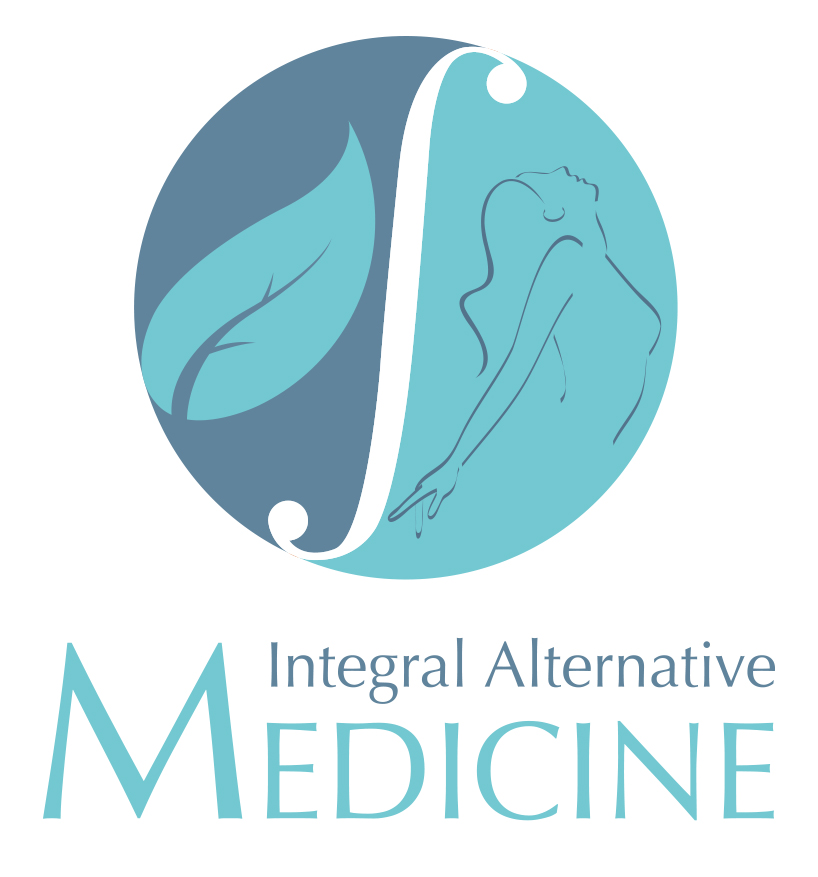 Integral Alternative Medicine LLC730 S Dearborn St
Integral Alternative Medicine LLC730 S Dearborn St
Chicago, IL 60605(312) 631-3095 -
 EVANSTON AREA1609 Sherman Ave, Ste 205, Evanston, IL 60201(312) 631-3095
EVANSTON AREA1609 Sherman Ave, Ste 205, Evanston, IL 60201(312) 631-3095 -
Latest Articles:
- • Spring Clean Your Way to Better Health •
- • 5 Healthy Ways to Embrace the Spring Season •
- • Fun Things to do this Spring •
Chinese Medicine
Meno-Pause or Meno-Start? Life After 50

According to statistics at World Health Rankings, women’s life expectancy is 81.6 years (ranges between 74 and 84 depending on the state you live in). Menopause typically onsets at about 50. Theoretically, this means that the average woman should have more than 30 years of living after menopause!.
Women stress about these changes and are constantly looking for ways to beat the biological clock. It is time to shift our way of thinking and gracefully accept that menopause is a natural physiological process.
The first step is to educate ourselves about what to expect so we can be prepared to handle these changes. The climacteric phase or perimenopausal stage marks the beginning of the transition from reproductive years to non-reproductive years. Women are born with a fixed number of eggs stored within ovaries and are shed during each menstrual period.The hormones used to maintain this cycle are mainly estrogen and progesterone. Subsequently, as women age, the number of eggs and these hormones steadily decline. The severity of menopause symptoms can be attributed to the fluctuating hormone levels but can also be affected by lifestyle and dietary habits throughout a woman’s life prior to 50. Furthermore, it is important to note that 45-85% of women may experience any of these symptoms up to 5-10 years after hormone levels have decreased.
Eastern vs. Western Medicine

Western medicine practitioners contribute symptoms to be directly related to hormone imbalances. In addition to that, Traditional Chinese Medicine (TCM) practitioners believe these symptoms to be a result of systemic imbalances in combination with the body’s way of dealing with the natural aging process of menopause. Therefore, each woman’s experience is different depending on the systems affected.
Common symptoms include:
- Hot flashes
- Headaches
- Lethargy
- Irritability
- Anxiety
- Depression
- Insomnia
- Night Sweats
- Vaginal dryness
TCM considers the menopausal symptoms as indications that the Kidney energy is waning, termed as Kidney Yin Deficiency. Additional symptoms can include presentations of Kidney Yin Deficiency such as soreness and weakness of the lumbar regions and knees, dizziness, ringing in the ears, hearing problems, a dry mouth and throat, a hot sensation in the palms, soles of the feet, and chest and spontaneous sweating. We address both Kidney Yin Deficiency (the “root”) and the symptoms with acupuncture and Chinese herbs to tonify Kidney and clear heat.
Kidney deficiency is recognized in the clinic when the above-mentioned heat symptoms appear, which is characterized as “Empty heat” or “Heat from Deficiency” Empty heat can lead to insomnia, hot flashes, menopausal syndrome and anxiety disorders.
Symptom Relief
Current Western medicine treatments for menopause symptoms include hormone replacement therapy (HRT), which reduces vasomotor symptoms such as hot flashes by 20-30%. However, HRT comes with concerning side effects such as increased rates of heart attack, stroke, and breast cancer (1).
As a result, there have been several studies supporting alternative modalities in the treatment of the menopausal symptoms. Randomized control trials in the U.S., Norway, and parts of China have proven Traditional Chinese Medicine methods such acupuncture to result in as much as a 50% reduction in some of these symptoms with an average of 10-12 treatments over a 3-month period. (1,2,4)
The acupuncture points I use in my treatments target the Kidney and Heart meridians to alleviate these common distressing symptoms.
Fig 1 Fig 2 Fig 3 Fig 4
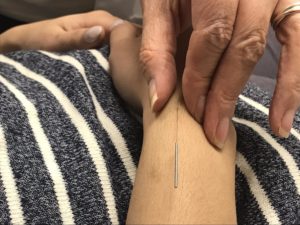



Fig. 1: Lung 7 and Kidney 6 combined to regulate the Conception Vessel (Ren), regulates the uterus and nourish Kidney yin, supports sleep.
Fig. 2: SP 6 benefits Kidney, reduces night sweats and helps sleep.
To clear heat and support sleep, I may use other points such as:
Fig. 3: Large Intestine 11 or 4
Fig: 4: Liver 3 – spreads Liver Qi, helps with moodiness, headaches and blood pressure (in combination with other points)
Heart acupoints – if insomnia is the main problem
Therefore, fear not. Approaching the age of 50 does not have to be a dreaded process. We don’t have to fit the stereotype of a woman with raging hormones, having no control of her emotions or internal temperature gauge. The comprehensive components of TCM include lifestyle advice, acupuncture, and Chinese herbs. Each patient’s treatment is unique and personalized based on the systemic imbalances. Given this information, we now have the knowledge and the tools to take the appropriate steps to ease into this transition and let this milestone be an exciting new phase of life!
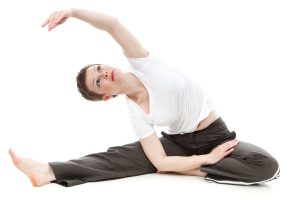
Stay tuned for future posts…..
“Just remember, once you’re over the hill you begin to pick up speed.” —Charles Schulz
Discussion Question: What are some of your fears for approaching menopause?
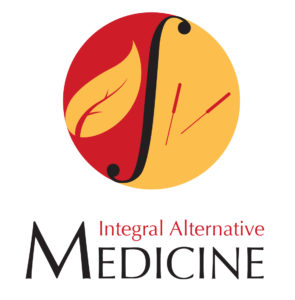
Bibliography
- Borud EK, Alraek T, White A, Fonnebo V, Grimsgaard S. The effect of TCM acupuncture on hot flushes among menopausal women (ACUFLASH) study: a study protocol of an ongoing multi-centre randomised controlled clinical trial. BMC Complement Altern Med. 2007 Feb 26;7:6. PubMed PMID: 17324253; PubMed Central PMCID: PMC1819392.
- Fu C, Zhao N, Liu Z, Yuan LH, Xie C, Yang WJ, Yu XT, Yu H, Chen YF. Acupuncture Improves Peri-menopausal Insomnia: A Randomized Controlled Trial. Sleep. 2017 Nov 1;40(11). doi: 10.1093/sleep/zsx153. PubMed PMID: 29029258.
- Maciocia, Giovanni. “Obstetrics and Gynecology in CM.” (2011): 740-741.
- Venzke L, Calvert JF Jr, Gilbertson B. A randomized trial of acupuncture for vasomotor symptoms in post-menopausal women.Complement Ther Med. 2010 Apr;18(2):59-66. doi: 10.1016/j.ctim.2010.02.002. Epub 2010 Mar 23. PubMed PMID: 20430288.
Post-partum vulnerability

Early in the summer, a young mother with her newborn baby was at the mall, doing some shopping. She was wearing a cute summer dress with no sleeves. The temperature at the store was pretty chilly and I could not help but get concerned about that girl’s health for being exposed to such a cold environment during her post-partum period that consists of about six weeks after childbirth.
In China, the post-partum period is considered a very vulnerable time for the mother, and they ensure that the mother receives proper care at home. There is a tradition called Zuo Yue Zi Postpartum confinement passed to women from generation to generation. Generally speaking, the new mother should follow a special care routine that involves a special diet and avoiding drafts and physical work for an entire month.
This makes sense from the traditional Chinese medicine perspective. After childbirth, the mother’s body is deficient in terms of energy and blood (Qi and Blood deficiency), so the focus should be on replenishing blood by providing high-quality nutrients and facilitating the digestive system’s ability to process and obtain nutrients from food.
Here are some symptoms that correlate to “Qi and Blood deficiency” that are common after childbirth:
- Fatigue
- Dizziness or lightheadedness
- Loss of memory
- Dry eyes
- Poor appetite
- Insomnia
- Blurred vision
- Melancholy, sadness or depressive mood
Note: A more severe presentation may indicate post-partum depression, which is a condition that requires medical attention. If that is the case, seek immediate medical attention.
Recommended foods to support blood replenishment:
- Grains: barley, corn, oats, rice, sweet rice, wheat, bran.
- Vegetables: alfalfa sprout, artichoke, beetroot, button mushroom, cabbage, celery, dandelion leaf, dark leafy greens, kelp, shiitake mushroom, spinach, watercress, wheatgrass (in particular artichoke, beets, dandelion leaf, kelp).
- Fruit: avocado, dates, mulberries, grapes, figs, apricots, plums.
- Nuts and seeds: almonds, black sesame.
- Fish: mussel, octopus, oyster, sardine, tuna.
- Meats: chicken, red meat, liver (pork and sheep).
- Beans: adzuki, black soya, kidney beans, black beans.
- Spices: ginger, cardamom, vanilla, cinnamon.
- Herbs: nettle, parsley.
- Eggs: chicken eggs.
- Condiments that are warming and may increase the digestion are ginger, cardamom.
In addition, your Chinese herbalist can recommend appropriate decoctions or formulas for your individual needs (e.g. variations of Ba Zhen Tang or Gui Pi Tang) to speed up your recovery.
Disclaimer: This article contains general information about health topics but does not constitute medical advice. If you have any questions related to your condition, you should contact your doctor or healthcare provider. If you think you may be suffering from any medical condition, you should seek immediate medical attention.
Pain management with acupuncture
As a doctor, one of my big concerns is the increased use of pain medication, in particular, those opioid derivatives that are causing an epidemic problem of overuse in the United States of America, as mentioned in several publications and now more widely covered in the news.
Acupuncture is a well-known technique used to treat pain in the US for some decades now and in China for thousands of years. Pain management is the most studied indication linked to acupuncture in the Western world. If you are in pain, I would like to recommend that you opt for a more natural, non-pharmacological approach to avoid risks of pain medication side effects such as constipation and those mentioned in the Harvard Health Publications report on pain relief with natural methods.
The practice of acupuncture requires board certification and is a licensed profession in most states in the US. The training involves the basis of Chinese medical practice and diagnosis which takes around four years in graduate school involving over 600 hours of clinical practice.
I suggest finding a certified acupuncturist in your area who will guide you in this individualized approach that looks for the root of the problem rather than just minimizing the symptoms.
One frequently observed, “side effect” of acupuncture is a feeling of relaxation and well-being, so why not to give it a try?
A good resource to find a certified practitioner is the NCCAOM website. If you live in the Chicago area, we would be glad to make an evaluation on your particular case. Schedule an appointment with us!
Disclaimer: This article contains general information about health topics but does not constitute medical advice. If you have any questions related to your condition, you should contact your doctor or healthcare provider. If you think you may be suffering from any medical condition, you should seek immediate medical attention.
Allergies and Alternative Medicine
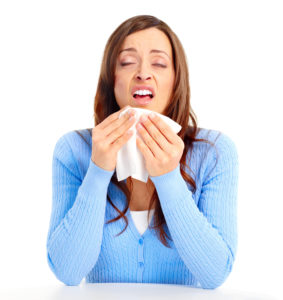 Allergies are common in the spring season, so I would like to share our perspective on this topic.
Allergies are common in the spring season, so I would like to share our perspective on this topic.
What is it?
An allergy is described by the Merriam-Webster dictionary as “1: altered bodily reactivity (such as hypersensitivity) to an antigen in response to a first exposure; 2: exaggerated or pathological immunological reaction (as by sneezing, difficulty breathing, itching, or skin rashes) to substances, situations, or physical states that are without comparable effect on the average individual.”
In terms of Traditional Chinese Medicine (TCM), sneezing, itching, or skin rashes are considered pathological effects of “wind,” and the causes may be multiple. In general, it represents a weakness in the “protective qi” or protective shield of the body.
What can TCM do for allergies?
There are several approaches available to the TCM practitioner, such as acupuncture, herbal remedies, and dietary and lifestyle recommendations.
Using a combination of the above-mentioned methods helps the body to rebuild the protective shield.
TCM is not meant for emergency situations, however.
It may take a few months for you to notice changes to your reactivity to seme allergens, so we recommend not stopping the medication your doctor has prescribed to manage allergic symptoms.
If you would like to learn more about allergies from a TCM perspective, you may find You may find this article useful.
Disclaimer: This article contains general information about health topics but does not constitute medical advice. If you have any questions related to your condition, you should contact your doctor or healthcare provider. If you think you may be suffering from any medical condition, you should seek immediate medical attention.
Sleeping disorders and acupuncture
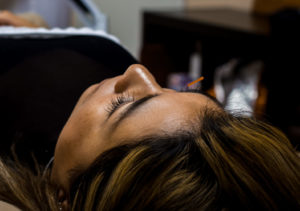
Insomnia, a common issue in our society.
The most common sleep disorders include insomnia, sleep apnea, restless legs syndrome, and narcolepsy. Insomnia, a common complaint at our office causing patients a number of problems, such as weight gain, bad mood, irritability and lack of concentration, among others.
The problem.
According to the NIH, at least 40 million Americans each year suffer from chronic, long-term sleep disorders each year, and an additional 20 million experience occasional sleeping problems.
Issues.
Sleeping disorders and the resulting sleep deprivation interfere with work, driving, and social activities. They also account for an estimated $16 billion in medical costs each year Full article here
Prescription of sleeping pills are usually needed as reflected in the increasing sales of sleeping was estimated at 9.0 billion by the Global Information Analysts where the US represents the largest market for sleeping pills globally, accounting for a share of more than 48% of the global market. Read the article
The risks.
Dr. Daniel Kripke has published several studies on the dangers of long term use of sleeping pills, as mentioned in an article at Webmd on sleep disorders He studied the possible link between sleeping pills and death and it showed that sleeping pill users have a 5.3% higher chance of death and 35% higher cancer risk. Over an average of 2.5 years, the death rate for those who did not use sleeping pills was 1.2%. and 6.1% for people with sleeping pill prescriptions, showing that the chances of death increases with sleeping pills. Even those prescribed 18 or fewer sleeping pills a year had a 3.6-fold higher death risk. Based on these findings, Kripke and colleagues estimate that sleeping pills are linked between 320,000 and 507,000 U.S. deaths each year . Even thought is not concrete enough to prove that sleeping pills are linked to death, it does show that people take sleeping pills have a higher risk of getting sick and a higher risk for addiction.
The alternative.
Fortunately, we are able to help many patients with alternative medicine. In our clinic we use acupuncture alone or combined with other modalities of Chinese Medicine, such as herbal supplements, massages dietary recommendations and daily life changes. As previous research has shown sleeping pills have side effects that can affect your life, so why not trying natural techniques that have been in use for centuries?
For those interested in the use of acupuncture and Chinese herbs, here you are some articles compiled by the British Acupuncture Council Read more although you should have in mind that the parameters considered in Traditional Chinese Medicine are different to those used in biomedicine, therefore it is not possible to compare side-by side. I will expand on that in future post.
Disclaimer: This post contains general information about health topics but does not constitute medical advice. If you have any questions related with your condition you should contact your doctor or healthcare provider. If you think you may be suffering form any medical condition, you should seek immediate medical attention.

